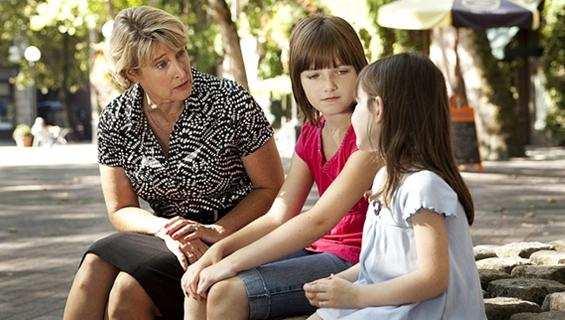Sibling Squabbles: Here are some smart ways to minimize them

Are you heading to parenting classes due to the constant fights between your kids? Parents often rate sibling squabbles as the primary concern they have to confront in family life. However, a recent study suggests kids pick up critical conflict resolution skills from their intermittent fights. Hence, if you are trying to stop your kids from their daily squabbles you may well be confining them of any learning options.
However, according to research professor Mark Feinberg at the Penn State’s Prevention Research Centre for the Promotion of Human Development “This is an important issue not only because siblings share a lifetime-long relationship, but also because sibling relations appear to be as important as parenting and peer relations for many aspects of a child’s development and well-being.” Thereupon, if the sibling squabble has gone upto the level of rivalry, diplomatic interference by the parents becomes extremely important to incite a healthy relationship between siblings.
So to maintain that everyday unanimity and to cultivate a cordial home environment, here are some smart ways to minimize sibling squabbles.
Pay Special Attention to the Older Sibling
According to the theory by psychologist Alfred Adler, the children who are born first in the order tend to lack self-confidence and suffer from inferiority complex with the birth of the second child. This, Adler says is due to the first child’s exposure to adults only till the other child is born. On the other hand, the second child is socially stronger as he/she has a sibling to deal with for the rest of life.
In order to reduce the first child’s mental disturbance with the birth of the second child, parents should make the older sibling feel special by involving them caring for the new born like, helping with changing diapers or read story books to the baby. And, when the baby is off to sleep parents can play with the older sibling, let him or her sleep on your chest, or simply watch a movie.
Restrict Abuse
A study published in the journal “Child Maltreatment” in 2005 says that 35 percent of the kids have been physically abused, that is hit by their siblings in that year. The research was conducted based on telephonic interviews with 2030 kids or their caretakers. Out of this figure, 14 percent were repeatedly hit by the other sibling, 4.55 percent were injured by the attack and 2 percent were attacked by siblings using rocks, knives, etc.
Parents should set ground rules right from the start making certain things stark clear about using abusive language, hitting, teasing or provoking. They should also avoid assigning more power to the older sibling compared to the younger, have a one-on-one with each child every day and keeping a watch on their activities.
Conflict Resolution Strategies
Associate Professor of family studies at the University of New Hampshire, Ph. D. Corina Jenkins Tucker says that “Children can test which conflict resolution strategies work and which don’t,” According to Tucker, what children learn during their childhood has a long term effect. Though it is believed that it’s a learning phase for kids to negotiate conflict, according to McHale kids who learn hostile ways to handle conflicts are more prone to engage in negative activities.
MacHale recommends parent’s interference here where they can help the kids develop compromising attitude, avoid favoritism, and try resolving sibling conflicts tacitly.
Keep Away from Intervening
A new study suggests parents to keep away from intervening in sibling fights, as it can cause long lasting emotional harm. According to assistant professor of psychological science, Nicole Campione-Barr at the University of Missouri ‘Although parents may be inclined to step in as arbiters, previous research has found that parents’ interventions into adolescent sibling conflict can be detrimental. The research was conducted on 145 pairs of kids in Europe and America across two categories – equality and fairness.
Hence, only in cases if the sibling conflict becomes intense parents can step in and intervene.
Fight Depressive Symptoms and Anxiety
The same study at the University of Missouri conducted on the 145 children sibling duos suggest that kids with a conflict are prone to mood fluctuations and emotional upheaval. Campion-Barr says “There are definitely aspects that are going both ways,” “But we believe that there are particular types of conflict that are setting kids up for problems”
In the journal the author suggests while the parents should recognize the kid’s need of privacy and personal space as they look for liberty through their childhood, they can also assign equal duties and time among the siblings in order to avoid any possibility of conflict arising.
Learn to Manage Stress & Emotions
In a recent study conducted at the University of Illinois College of Agriculture, Consumer and Environmental Sciences along with the children learning to resolve sibling conflict, mothers also learnt to manage stress and emotions in the process of teaching their children. According to Professor Laurie Kramer “Parenting more than one child is stressful, and until now, there have been few ways to help parents deal with their own distress when children squabble. Many parents, especially mothers, use how their kids are getting along as a barometer for how well they’re doing as a parent. This is true even though virtually all siblings have some conflict”.
The study helped parents of the siblings participating in the program to manage their extreme negative emotions while their kids fight so that they can control the situation in a better way.
Reference – http://www.med.umich.edu/yourchild/topics/sibabuse.htm
http://psychology.jrank.org/pages/80/Birth-Order.html
http://parade.com/23970/francinerusso/the-science-of-siblings/
http://www.dailymail.co.uk/news/article-2252041/Sibling-rivalry-causes-long-term-psychological-harm-parents-leave-squabbling-teens-to-avoid-damage.html
http://healthland.time.com/2012/12/21/sibling-rivalry-squabbling-may-lead-to-depressive-symptoms-anxiety-among-teens/
http://www.sciencedaily.com/releases/2015/06/150625161514.htm
.jpg)
